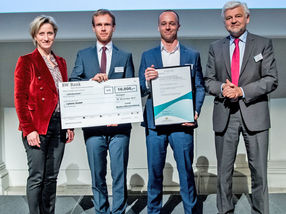Nordic/Baltic campaign launched to help Young Innovative Companies
Five national biotech associations representing the Swedish, Finnish, Norwegian and Estonian biotech industries announced that they have started a joint-project aimed at the evaluation of a national implementation of the Young Innovative Company (YIC) status to support the creation and development of globally competitive R&D driven companies. The project is supported by France Biotech, the French biotech association, EuropaBio, the European Association for Bioindustries and is funded by the European Commission.
The YIC status is based on social cost and tax exemptions, allowing companies to re-invest the savings in R&D. A higher investment in R&D will help to reduce the time-to-market of internally developed products and technologies. On the short term, the implementation of the YIC status on a national level requires an initial investment from national governments as it decreases tax and other fiscal revenues. However, in the longer term, tax revenues will significantly increase as new companies and jobs are created, resulting in a positive investment balance as well as increased economic growth.
In 2004, France was the first country to adopt a YIC-based fiscal regime, exempting companies up to 8 years old from all taxes and social contributions. Today, more than 1,000 French companies have opted for the YIC status, including 150 biotech companies. Earlier this year, the Belgian government also decided to adopt a YIC-based status in mid-2006, and will consequently be the second European country to implement an initiative to support the development of young companies in this way. Now, Sweden, Finland, Norway and Estonia could be the next to introduce the status.
Part of the project will also focus on the implementation of the Young Listed Company (YLC) status. While the YIC status is focused on early stage and emerging companies, the YLC status is targeted at innovative companies listed on a stock exchange.
Most read news
Other news from the department politics & laws

Get the life science industry in your inbox
By submitting this form you agree that LUMITOS AG will send you the newsletter(s) selected above by email. Your data will not be passed on to third parties. Your data will be stored and processed in accordance with our data protection regulations. LUMITOS may contact you by email for the purpose of advertising or market and opinion surveys. You can revoke your consent at any time without giving reasons to LUMITOS AG, Ernst-Augustin-Str. 2, 12489 Berlin, Germany or by e-mail at revoke@lumitos.com with effect for the future. In addition, each email contains a link to unsubscribe from the corresponding newsletter.


















































